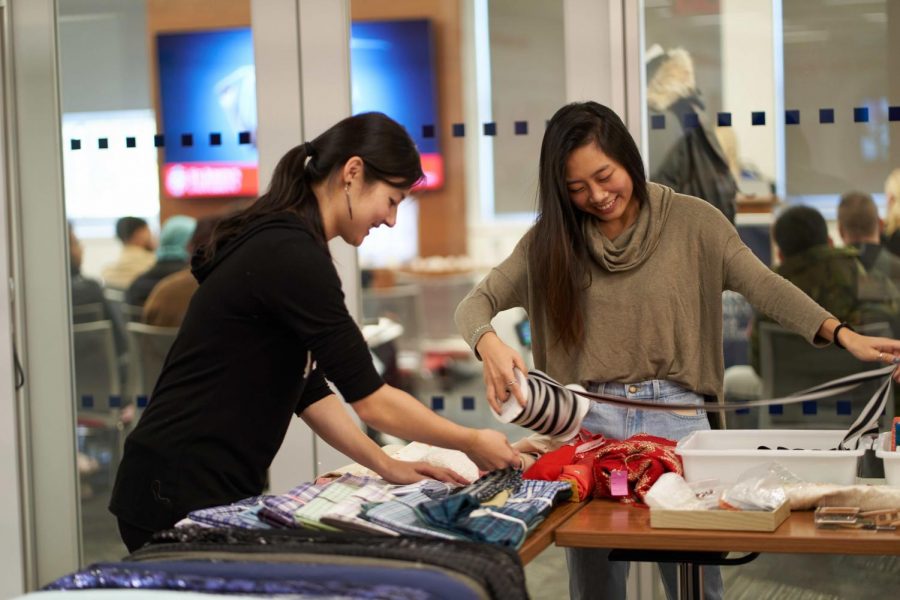Editor’s note: This story has been edited on Feb. 27 to clarify details regarding the Fashion Studies Program.
Most people have no idea where their clothing comes from or what it’s made out of. In the St. John’s Fashion Studies program, sustainability is at the forefront. Why is sustainability so important?
The Fashion Industry is a leading source of pollution across the globe. The New York Times reported in 2018 that about three-fifths of the clothing produced in the world ends up in a landfill or incinerator where it cannot properly decompose, sending toxins into the earth. Clothing is mass produced, which gives us fast fashion. St. John’s Professor Richard Bigger, a long-time fashion industry professional, teaches his students about the “concept of goodness.”
“The concept of goodness is that we all need to live and succeed. Sustainability is one variable within this ‘goodness’ that we as a people and planet need to understand and embrace,” Bigger told the Torch.
Bigger teaches “The Construction of Denim,” where he encourages students to acknowledge the real truth behind their favorite pair of jeans. As taught in his class and cited by The Fashion Law, it takes 1,800 gallons of water to make just one pair of cotton jeans. With fast fashion, pure cotton jeans are often turned into blends, using synthetic chemicals to create the denim in a timely way in mass quantities.
“We have taken from the planet through ignorance, greed and lack of respect for the future,” Bigger said. Sustainability is one of the atonements for these past sins.”
The conversation around sustainability does not stop with Bigger’s course. From Dr. Andrea Licari’s “Intro to Fashion Industry and Careers” to Dr. Almerinda Forte’s “Fashion Ethics,” sustainability is broken down in each sector of the fashion industry. In Licari’s class, students learn about the concepts of marketing and fair-trade, while also taking a look into how goods such as luxury goods, leathers and more are made. In Forte’s “Fashion Ethics,” students study ethical practices in business, fairness and equality towards workers, while exploring sustainable business models and campaigns.
“Being able to discuss the different aspects of sustainability from the use of animal products, waste and business ethics has truly been invaluable,” Vanessa Clark, a senior communications major and fashion studies minor, said
What you’re wearing right now has likely gone through several steps of production before you purchased it. It has been sourced from the earth, woven with fibers, dyed, processed with chemicals, sent through manufacturing, shipped and delivered. In SJU’s fashion program, students are made aware of the process and examine ways they can change it.
“The Global Fashion Industry in design, merchandising and production have just begun to clean the mess up one step at a time,” Bigger said.
St. John’s Fashion Studies Program teaches students about the Business of Fashion with social justice, ethics and sustainability. Students also explore fashion design through history, sustainability, social justice and ethics. This makes the program unique.
Students have utilized the knowledge gained in the Fashion Studies program to propel themselves into their careers.
Clark, grateful for her time in the program said, “The fashion professors have done an amazing job teaching us about sustainability. I have been able to carry the knowledge I have gained in these courses into my career with W3LL People and e.l.f. Beauty in clean and sustainable beauty and fashion.”
As the push for sustainability strengthens in the fashion industry, schools are integrating sustainability into their teachings, but at St. John’s it is the core of the Fashion Studies program.









Dr. Almerinda Forte • Feb 25, 2021 at 7:59 pm
Excellent job! You should be proud!